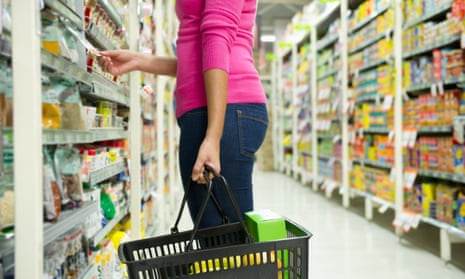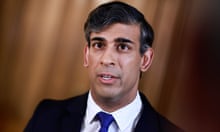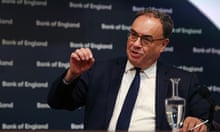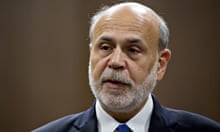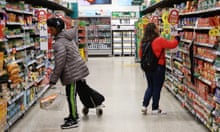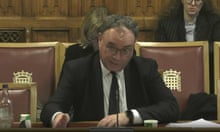UK inflation fell to 3.4% in February – the lowest level for two and a half years – driven in part by a slowdown in the pace of food and restaurant price rises.
The bigger-than-forecast decline in the consumer prices index (CPI) from 4% in January will give a boost to Rishi Sunak, who has pledged to reduce inflation, and add to speculation that the Bank of England will cut interest rates in the summer.
However, Labour and trade unions said many families still faced a cost of living crisis after an almost 25% increase in the cost of food since January 2022 and a doubling of gas prices since the start of the Russian invasion of Ukraine.
Most economists had predicted that February’s headline figure from the Office for National Statistics (ONS) would drop to 3.5% – the lowest since September 2021, when it was 3.1%. A reduction in the rate of inflation does not mean that prices are falling, just that they are rising more slowly.
Investors are betting that inflation will tumble further through the spring months, reflecting the sharp decline in the price of natural gas since last year and a slowdown in food price rises.
The Bank maintains an inflation target of 2%, and the central bank is forecasting that CPI will fall below 2% in April and staying there for much of the summer. However, the central bank’s policymakers are expected to leave the base interest rate unchanged at 5.25% when they meet on Thursday.
Paul Dales, the chief UK economist at the consultancy Capital Economics, predicted inflation would drop towards 1% after April and this steeper-than-expected fall would push the Bank to cut rates in the summer.
“Our view that inflation will fall below 2% in April and then ease towards 1% suggests the BoE may have to start cutting rates in the summer and reduce them to 3% next year,” Dales said.
February’s fall in CPI was widespread across most categories, with food inflation declining from 7% to 5% – down from a peak of 19.1% in March last year.
Restaurant and hotel price inflation dropped from 7% to 6%. Secondhand car prices also slumped by 7.3% over the last year compared with an annual decline of 5.9% in January.
The measure of core inflation, which strips out volatile elements like oil and food prices, declined from 5.1% to 4.5%.
Services inflation, which is closely watched by the central bank for signs that domestic inflation is easing, fell by 0.1 percentage point less than expected from 6.5% to 6.1%.
“Accordingly, inflation is no more persistent than the BoE expected and is moving in line with the path that the BoE has hinted would warrant interest rate cuts,” said Dales.
after newsletter promotion
Wage rises across the hotels and restaurant sector have pushed up consumer prices, and are due to increase further when the national minumum wage goes up by nearly 10% in April. Wages have also risen by more than inflation in the business services and financial services sectors where skills shortages have put pressure on prices.
US inflation increased from 3.1% in January to 3.2% in February, while across the 20-member eurozone consumer prices dropped to 2.6% in February from 2.8% in January.
The chancellor, Jeremy Hunt, said inflation had fallen “decisively” in a sign that the government’s economic plans were working.
“This sets the scene for better economic conditions, which could allow further progress on our ambition to boost growth and make work pay by bringing down national insurance as we work towards abolishing the double tax on work – but only if we can do so without increasing borrowing or cutting funding for public services,”he said.
His Labour counterpart, Rachel Reeves, dismissed Hunt’s claim. The shadow chancellor said prices remained high while “the tax burden is the highest it has been in 70 years and mortgage payments are going up”.
In February last year, annual inflation was 10.1%, down from a peak of 11.1% in October 2022.
The general secretary of the Trades Union Congress, Paul Nowak, said the decline in inflation would provide scant relief for hard-pressed families. “Prices are still going up – just a little more slowly,” he said.
